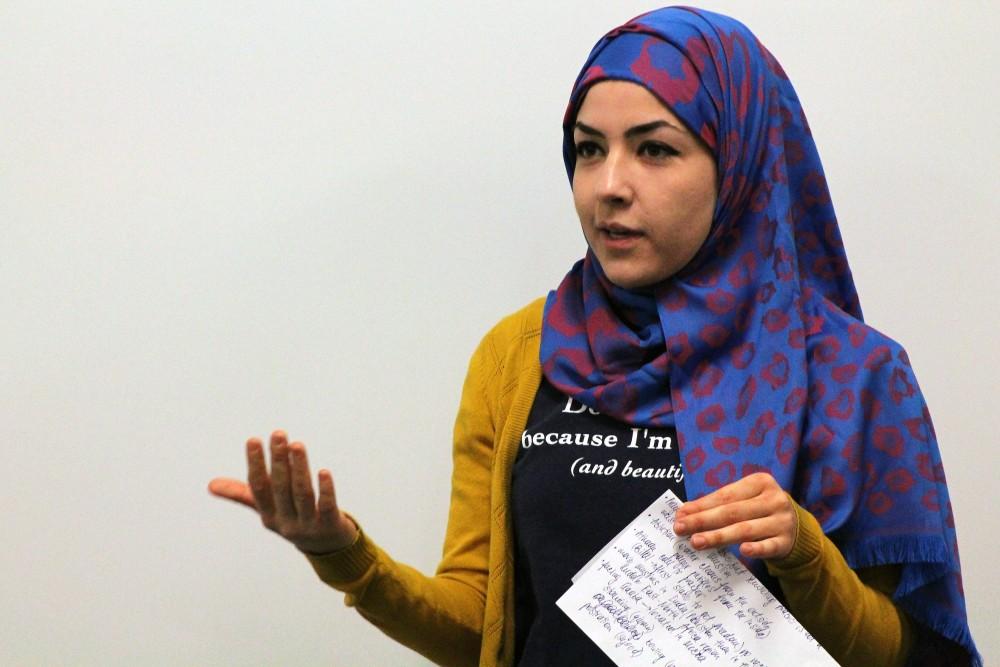Muslim Student Association shares faith with others

GV / Emily Frye Senior Nargilya Gasanova explaining one of the five pillars of Islam
Mar 12, 2014
To kick off Islamic Awareness Week, students from the Muslim Students’ Association presented Monday on the five pillars of Islam, which are the basic acts that provide the foundation for the lives of Muslims.
“An important thing to understand about the religion of Islam is it goes off the Judeo-Christian tradition,” said Jacob Lumsden, a member of MSA. “It is a continuation of Judaism and Christianity, and because of that there are certain themes, elements, like the ritual bathing of baptism, that are mimicked in Islam.”
The event, “Five Pillars, Five Stories: A Story from an MSA Student,” was a part of the Intercultural Festival being presented by Laker Traditions and the Cultural Programming Council.
The first pillar, presented by MSA co-president Amina Mohammad, is Shahadah, or the testimony of faith. To complete Shahadah, Muslims must state their belief in one God and affirm their belief that Muhammad is the last and final prophet.
The second pillar, Salat, is that of prayer. Muslims say five separate prescribed prayers throughout the day. Each is said at a set time based on the position of the sun. Some prayers, verses from the Koran, are recited in Arabic while others can be said in native languages.
“Knowing Arabic is not a necessity or a must to be Muslim,” said Nargilya Gasanova, a member of MSA. “It’s very similar to Jews. A lot of prayers in the religion of Judaism are in Hebrew.”
The third pillar, Zakat, is a form of almsgiving or giving to the poor. Zakat requires Muslims who have excess wealth to give 2.5 percent of their wealth to those in need.
“It’s the personal responsibility for Muslims to support those who are living in economic hardship, and it’s a means to eradicate inequality among people,” said Jenna Stoken, co-president of MSA. “As Muslims, we do not like inequality whether it be economic, racial or any other way. It’s a way to get closer to God. By giving to others, you are recognizing a way to get yourself closer to God. It’s a way to purify your soul.”
The next pillar, Sawm, is fasting during Ramadan, which is the ninth month of the Islamic calendar. During this month, practicing Muslims refrain from eating from dawn to dusk.
“If Muslims can take this month and be as devoted as possible and even go so far as to be without basic food and water, the sustenance of life, if you can go without actual physical sustenance, then it’s not so hard to go without sin or to go without evil,” Lumsden said.
Hajj, the final pillar of Islam, is the travel to Mecca, Saudi Arabia — the holiest city according to Islam. The journey of Hajj is required of those who are able to afford to participate, though it is recognized that not everybody will be able to.
Anas Almassrahy, an international student at GVSU from Saudi Arabia, has been able to take part in Hajj three times.
“There are no classes of people,” Almassrahy said. “The Hajj is all humankind heading the same direction to do an act — the same action. The poor, the rich, whoever, the politician, the famous, all together in one place doing the same thing, worshiping the Holy God.”

























